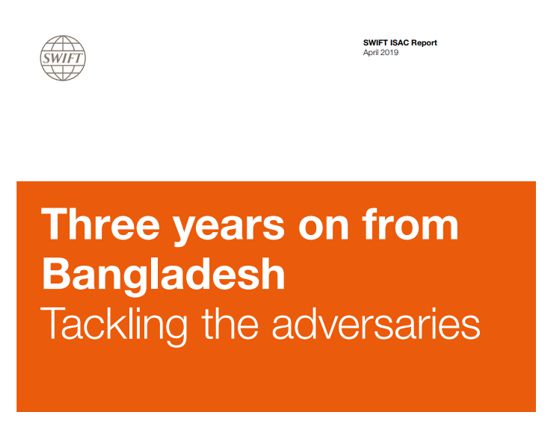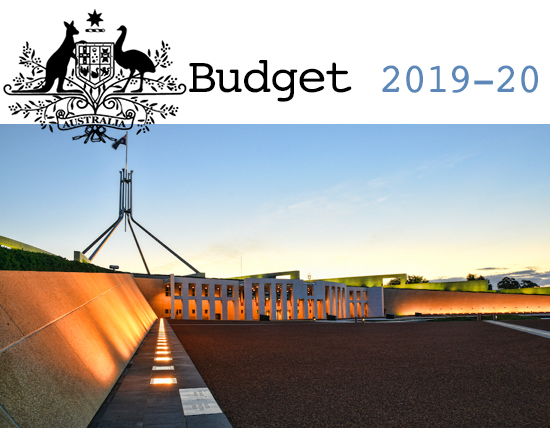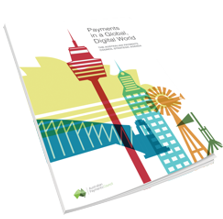
What the decline in cheques tells us about the future of Australian payments
The decline in cheques is nothing new. Over the last decade, the RBA’s payment statistics show that Australians’ use of cheques has declined by 82%, with cheques now accounting for only 0.2% of consumer payments in the economy.
However, this decline is accelerating rather than slowing down. Over the last year, cheque use has fallen by 26%, the highest ever reduction in a single year.
This of course reflects Australian consumers’ increasing comfort in the use of digital alternatives to cheques. Some of this is in specific industries, as new digital alternatives are rolled out. An example here is e-conveyancing. Property sales, and deposits, have traditionally been settled by cheque but this is now changing: for example, the NSW and Victorian governments mandated the use of e-conveyancing from 1 July this year.
Extrapolating from this example, the strong use of digital alternatives reflects the significant benefits they offer in comparison to cheques, in terms of the speed of payment, confirmation of payment, additional data that can flow with the payment, and so on. Compare this to the United States where anecdotally 50% of business-to-business payments remain in cheque form and consider the impact that has on the underlying economy.
Managing the decline in cheques
While the decline is consumer/demand led, it is important that those consumers and sectors that still use cheques are aware of the digital alternatives and start to switch to them ahead of any further decline. AusPayNet has built on previous work conducted by the Australian Payments Council (APC) to ensure that no one gets left behind. Financial institutions have been helping their customers by actively promoting awareness of alternative payment options and choices. That includes Australia’s New Payments Platform (NPP) which offers a real-time alternative to cheques. It also includes the promotion of online banking, banking app functionality, and – important particularly in regional Australia and among older Australians – in-branch digital facilities.
AusPayNet is also initiating a nationwide advocacy program to ensure payment method neutrality in legislation, regulation and other industry body rules or guidelines. In some cases, such rules might currently specify or require payment by cheque. Making these rules payment neutral will remove roadblocks and importantly will allow consumers choice in their method of payment, rather than prescribing the use of cheques. It will thus allow consumers to consistently access the benefits of digital payments.
The future of Australian payments
As well as managing the decline in cheques, AusPayNet is also cognisant that the decline itself and the benefits of digital alternatives are indicators of a future for Australian payment systems which looks different from their current state.
AusPayNet is therefore developing a roadmap to provide a blueprint for that future state and the changes that need to be made to achieve it. Again, this roadmap will build on excellent work done by the APC in developing a new strategic agenda, Payments in a Global, Digital World, to ensure that the payments system continues to meet the changing needs of all users in a rapidly digitalising economy
In the case of cheques, AusPayNet’s roadmap will need to consider, as the RBA Governor, Philip Lowe explained in December 2018, that “it will be appropriate at some point to wind up the cheque system”. The roadmap will need to ensure that the roles and responsibilities of such an end point for cheques are clear and that enough notice is factored-in to ensure all consumers are able to use the digital alternatives discussed earlier.
A second consideration for the roadmap is the decline in the use of cash. In other countries – notably the US and UK – there has recently been significant debate about the potential impact on consumers of moving towards a cashless society. While Australia is some way away from cashlessness, it will certainly progressively have less cash over time. Our roadmap will therefore need to consider reviews of the level of cash use and the impact on society as it further declines.
As mentioned earlier, the NPP provides Australia with a real-time payments system which can be leveraged not just where real-time payments make a difference – and they do to the underlying economy, given that they provide immediate availability of funds – but also where payments with rich data can too. In that context, our roadmap will need to consider the future of the current direct entry system as volume migrates over time to the NPP.
A fourth consideration for the roadmap is a topic I mentioned in the last Payments Monitor: the adoption of and migration to the ISO 20022 messaging standard. As payment systems internationally migrate to this standard, we need to consider the best strategy for our domestic payment systems. The roadmap will need to summarise this strategy, following industry feedback on the current consultation on this topic.
The roadmap will also need to consider underlying payments infrastructure, including networks. In this context, we will review the technology underpinning the Community of Interest Network (COIN) to ensure that it remains best practice given the evolution of low value payments.
Finally, building on the work we have already done in formulating a framework for mitigating card-not-present fraud, AusPayNet’s roadmap will need to consider what’s next in fraud prevention. The analogy used in combatting fraud is the balloon effect: when you squeeze a balloon, you displace air, which bulges out elsewhere. We have put the “squeeze” on card-not-present fraud, and now need to be ready for the next wave of fraud, in terms of identity fraud, push payment scams and so on.
Having such a roadmap will help us determine the future of Australian payments and what changes will be necessary to achieve that future. But we will need your help to do so: we envisage consulting on the roadmap before the end of this year and look forward to your feedback on it.
Australian Payments Network Summit
We’re delighted to announce that the Governor of the Reserve Bank, Philip Lowe, will be keynote speaker at our Summit to be held on Tuesday, 10 December 2019.
The Summit will bring together a wide range of participants from financial institutions, payment system operators, technology providers, fintechs, retailers, regulators and government bodies for a day of thought-provoking conversation.
Our theme this year is Payments - the Key to the Best Customer Outcomes. Payments is front and centre of the digital transformation agenda because the vast majority of interactions involve an individual or business getting paid. At the Summit, we’ll focus on case studies to unpick what’s really at the heart of delivering the best customer outcomes, covering the opportunities and challenges facing both retail and corporate payments.
Registration is our now open and details can be found on the Summit website. We invite you to register now.
Summit RegistrationSelected Articles See All >
CNP Fraud Mitigation Framework takes effect
The industry Card-Not-Present (CNP) Fraud Mitigation Framework took effect on 1 July 2019. This Framework is the culmination of 18 months of consultation with the wider payments industry including issuers, acquirers, merchants, card schemes, payment gateways and service providers, and regulatory bodies. It embodies the e-commerce community’s common goal of reducing CNP fraud while ensuring that online transactions continue to grow.
How the e-commerce community came together:
2018
- Feb: AusPayNet and the RBA hosted an accelerator event, resulting in clear consensus among 70 participants to develop an industry framework for mitigating CNP fraud in Australia.
- Jul: AusPayNet and the Australian Retailers Association hosted workshops in Sydney, Brisbane and Melbourne, gaining feedback from 90 participants on the key concepts of the draft Framework.
- Aug: The draft Framework was circulated to the wider payments community, commencing our first formal consultation period.
- Sep: The first consultation period closed, with over 300 comments provided to AusPayNet.
- Dec: The consultation feedback was used to update the Framework, and the second formal consultation period commenced proposing an implementation date of 1 July 2019.
2019
- Feb: The second consultation period, which included a full legal review, closed.
- Mar: The Framework was presented to AusPayNet members at our ‘Combatting Financial Fraud’ event.
- Apr: The final CNP Fraud Mitigation Framework was released to the wider payments community.
- 1 July: The CNP Fraud Mitigation Framework came into effect.
We look forward to continuing working closely with the e-commerce community. A summary of the Framework is available here and you can read our recent blog here.
APC Strategic Agenda
For the last three years, the Australian Payments Plan has guided industry thinking in areas such as the changing payments mix, open data and digital identity.
On 27 June, the Australian Payments Council launched its new strategic agenda, Payments in a Global, Digital World, at the mid-year Payments Community meeting. This release follows eight months of consideration by the APC and public consultations. AusPayNet provided secretariat support to APC during this process.
The new strategic agenda outlines five focus areas that will guide the APC in the coming years: systemic resilience, combatting financial crime, financial inclusion and accessibility, interoperability and sustainable innovation. The aim is to ensure that the Australian payments system continues to inspire trust and confidence and to meet the changing needs of the economy, in a dynamic, global context.
The new strategic agenda is available at the APC’s website.
Emerging technologies
On 21 May 2019, 14 AusPayNet members participated in the first Emerging Technology Experts Group (ETEG). The group discussed and prioritised a number of topics for further analysis. One of the key topics discussed was AI and Machine Learning. Data61’s Discussion Paper,
Join in
As always, please get in touch if you have any feedback or suggestions for the group. We look forward to hearing from you: ETEG@auspaynet.com.au
New Members
We welcomed the following new members to AusPayNet during the second quarter of 2019:
- UnionPay International Co. Ltd joined as an AusPayNet Operator Member. UnionPay International is the leading card network throughout China and offers high quality payment services to the world’s largest cardholder base and
- Payment Express, already a member of our Issuers and Acquirers Community, has joined our Community of Interest Network (COIN ) as a payments services provider. Payment Express is a market leader in innovative payment technology.
Our members work together to improve the Australian payments system. For further information on membership please contact us.
Board Update
Long-serving director, David Jay, left the Board on 26 April 2019. Mr Jay served as a director for almost 9 years and played a critical role as Chairman of the Audit Risk and Finance Committee and member of various committees during his tenure. We thank him for his contribution. Mark Tibbles, Acting CEO of Australian Settlements Limited, has replaced Mr Jay as the director representing Building Society members.
Executive Update
Luke Wilson took up his role as our new Chief Operating Officer on 1 July 2019. Luke has worked in the payments and financial services industries throughout Asia Pacific. He has held executive roles across various functions including operations, customer acquisition and relationship management. Luke’s experience in these industries spans 20 years, most recently as Chief Customer Officer at Indue and prior to that in various executive roles at Experian and First Data. As AusPayNet’s COO, Luke oversees member services and engagement, IT, operations, project management and compliance.
More information on our Board and Executive team is available here.
Regulatory Roundup
ePayments Code
In April 2019, AusPayNet made a submission to the ASIC consultation paper, Review of the ePayments Code: Scope of the Review. The ePayments Code is voluntary and applies to a range of electronic payments. The review follows Productivity Commission recommendations that the Code be reviewed, updated and made mandatory. Mandating the Code is beyond the scope of the current review.
AusPayNet’s submission offered a range of suggestions to improve the operation of the Code including:
- updating the Code to bring it in line with new technological developments and business models
- clarifying liability and timeframes for unauthorised transaction claims
- reviewing the mistaken internet payments regime to ensure a shared understanding between Code subscribers, customers and ASIC about its application and process.
The review will continue in the second half of 2019. ASIC has stated it intends to hold a stakeholder roundtable in July 2019 to seek informal stakeholder feedback. Following that, a second consultation paper will be released in August to seek feedback on the actual proposed amendments to the Code; that consultation is likely to run for six to eight weeks.










